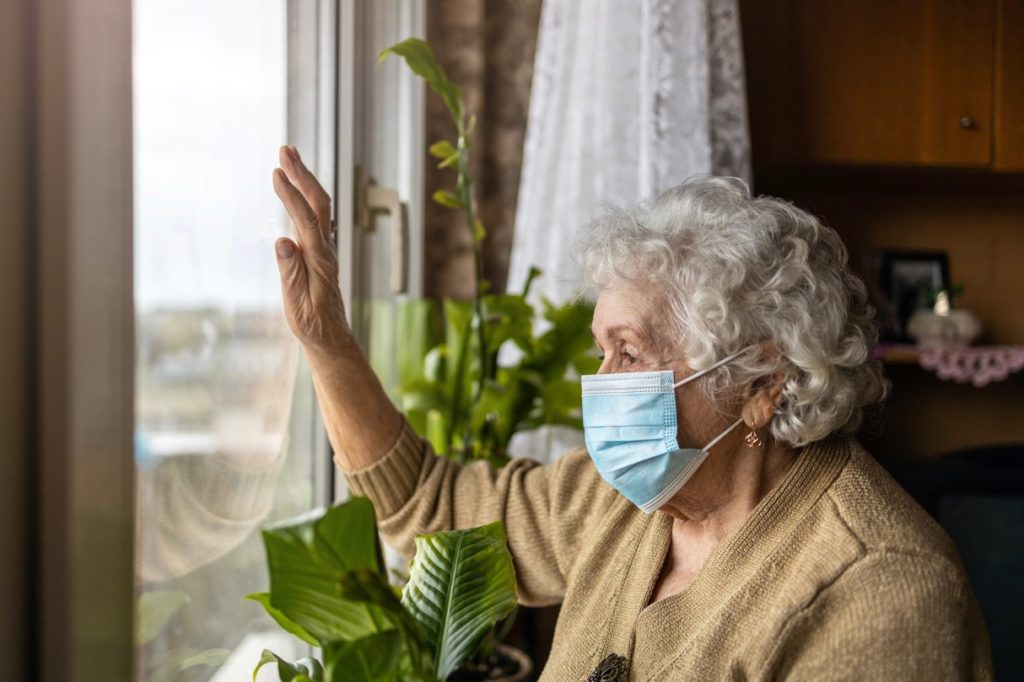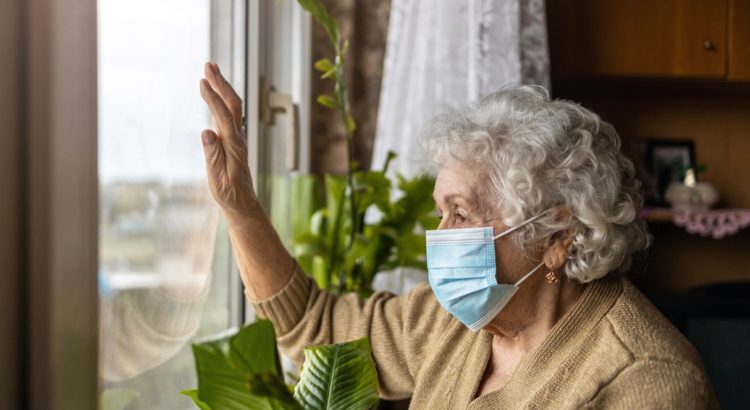
Draconian restrictions still preventing essential contact with loved ones
Boris Johnson’s announcement on 21February confirmed that the remaining Coronavirus restrictions (in England) will be lifted over the next few weeks. However, families with loved ones in care homes protest that many relatives are still experiencing draconian restrictions preventing contact with residents.
There is nothing in the newly published document ‘Covid-19 Response: Living with Covid’ to suggest that residents in social care facilities will regain the right to spend unlimited, quality time with their families. The document states that when the Health Protection (Coronavirus Restrictions) (Eng.,) (No., 3 Regs) are revoked, local authorities will manage outbreaks in high-risk settings and that further guidance will be issued for the care sector on 1April. In the document, the Government acknowledges the unprecedented impact of restrictions on our society, but astonishingly, fails to include care home residents in its list of those most seriously impacted by lockdown and isolation.
The Government’s Guidance on Care Home Visiting in England, updated on 2 February, lifted restrictions on the number of visitors allowed and stated that there should be no time limits on visits. An essential care giver (ECG) should also be able to visit freely, even if there is a coronavirus outbreak in the home. Visits are now supposed to take place in a setting most practical and comfortable for the resident – this should be the person’s room, if that is most appropriate. However, campaign groups are warning that many care homes still operate restrictive practices and 14 day ‘rolling lockdowns’ when there is a positive lateral flow test among staff or residents. Members of family support groups are still experiencing visits restricted to the garden or a ‘pod’, and in many cases limited to as little as 20 or 30 minutes every two or three weeks. The number of formal complaints to the Care Quality Commission underestimate the true picture, as families fear repercussions from care providers when they raise a grievance. Most homes still operate a booking system, whereby families must make an appointment to see their relative. Families from the devolved nations of Wales, Scotland and Northern Ireland report similar difficulties with rolling lockdowns during outbreaks. Ten months ago, ministers in Scotland vowed to introduce Anne’s Law, to ensure that people who live in adult care homes have the right to see and spend time with the people who are important to them. However, a bill has yet to be placed before parliament.
As the support group John’s Campaign points out, the Human Rights Act does not give families a practical means of legal redress:
‘They are usually forced to rely on lengthy and ineffectual complaint procedures, or CQC inspections several months down the line [. . .] By the time they next inspect a care home, catastrophic damage could have been caused to a resident by punitive isolation’.
Indeed, many are now not just concerned about isolation, but about serious incidents of neglect and abuse. These concerns are not new. In 2016, the BBC’s Victoria Derbyshire programme reported on hundreds of families banned from visiting elderly relatives, because they complained about the quality of care provided. The Coronavirus restrictions have exacerbated safeguarding concerns and low staffing levels, resulting in growing reports of abuse and neglect . In one Southport care home, residents with dementia were left for long periods unattended in a communal room with no bell; and in another shocking report, a member of staff in a Blackpool care home was apprehended for the rape of a 99 year old resident. These are not isolated incidents, and the Care Campaign for the Vulnerable repeatedly highlights examples of poor care. Without the right to visit regularly and unannounced, families have lost essential opportunities to detect neglect and abuse. The situation is now nothing short of a human rights crisis. As we approach the second anniversary of the first lockdown, it is inexcusable that people are still prevented from seeing families in care.
On January 9th, Lord Hunt of King’s Heath asked for an independent review and an amendment to the Health and Care Bill to provide a statutory duty for care homes to facilitate reasonable contact with relatives and their loved ones. However, Conservative whip, Baroness Penn, appearing unaware of the reality faced by many families, refused to conduct an independent review. Collectively, campaign groups are demanding that the right to unrestricted support from a relative or ‘care supporter’ must be urgently enshrined in law, and that there should be a duty on care providers to facilitate this. This right should be attached to the individual and not the institution – and be monitored and enforced by the regulator. As the Coronavirus Act, and domestic restrictions under the Public Health (Control of Disease) Act 1984 approach their ‘sunset’, two years after they were passed in March 2020, we must ensure that any provisions that allow care home managers to close their doors are expired, and that ‘guidance’ cannot be interpreted informally. There is as yet, nothing in existing or proposed legislation to ensure a return to humane, person-centred care, with families placed at the core of daily life and decision making.
List of References:
- Living with Covid
- Guidance on Care Home Visiting
- iNews: Restrictive practices
- Rights for Residents support group
- John’s Campaign: example of restrictive practices in Wales
- BBC Northern Ireland: restrictive practices
- Scotland: Consultation for Anne’s Law
- Failure to present bill for Anne’s Law
- John’s Campaign: Institutional abuse
- Victoria Derbyshire: 2016 programme on visiting bans
- Low staffing crisis
- Care home Professional: Staff suspended for poor care
- More poor care
- Carer convicted of rape
- Care Campaign for the Vulnerable: Case studies
- Lord Hunt
- Lord Hunt’s amendment

